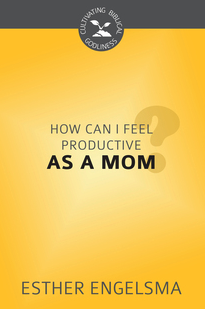When we think of apologetics, most of us think of logic, reason, philosophy, presuppositions, evidences, and so on. Rarely, if ever, do we think of feeling, passion, desire, and needs.
Some forms of Christian apologetics are characterized by way too much heat and passion, but the manner of arguing is not what we’re talking about here. We’re talking about using human feeling, passion, desire, and needs as the substance of our argument. Yes, we argue that Christianity satisfies the mind, but we should also argue that it satisfies the heart. As I briefly mentioned yesterday, this more experiential or existential apologetic is rarely utilized in our own day. However, I want to make the case for its addition to our apologetic armory.
The best book I’ve come across on this subject is Clifford Williams’s Existential Reasons for Belief in God; A Defense of Desires and Emotions for Faith which advocates for a needs-based apologetics that appeals to basic human needs. These longings include cosmic security, meaning protection from difficulties and suffering, and assurance that even if they do come that all will still be well. Then there is hope of life beyond the grave and, more than that, the desire of a blessed existence in heaven in the afterlife. The need for goodness is the craving for a good and virtuous life for ourselves and others. A larger life includes new and exhilarating experiences of things, people, and places. People also want the emotional security of being loved and a sense of significance, purpose, and destiny. The last but foundational self-directed need is forgiveness.
Other-directed needs that also satisfy self are love to others, delighting in the goodness of others, being present with and to those we love, pursuing justice and fairness for others, and a sense of awe at natural, moral, and spiritual wonders. Although these needs spring not from self-concern but concern for others, yet they also enrich the self when satisfied and impoverish if unsatisfied.
For needs-based reasoning to be persuasive, says Williams, the existential apologist must help people recognize these needs and feel them deeply. The greater the felt need, and the more people see that God alone can meet them, the more compelling the argument will be.
Two Different Needs-based Apologetic Arguments
Having identified these basic human needs, how can they be incorporated into apologetics? Williams helpfully distinguishes between two related but different needs-based apologetic arguments based on need: the evidential argument based upon needs and the existential argument based upon needs.
The evidential argument says that the presence of basic human needs that only God can satisfy is evidence of God’s existence and the veracity of the Christian religion. Clifford presents the needs-based evidential argument as follows:
1. We feel these basic human needs.
2. Only God can satisfy these needs.
3. Therefore, God exists.
Like all other evidential arguments, this one aims at a correct representation of reality. The evidence purports to explain what exists. Although it may succeed in proving God’s existence, it does not necessarily justify or persuade to faith in God. The fact that these basic human needs exist and that only God’s design can explain them and only he can satisfy them may be insufficient to persuade to faith in God. The evidences are used to support the truth of a claim (God exists) but not to justify faith.
The existential argument says that faith in God is justified because it satisfies specific needs. It doesn’t say anything about whether God exists; it simply says that as faith in God satisfies basic human needs, that’s sufficient justification for believing in God. The argument is not based on evidence for the existence of God or of a correct conception of reality, but the existence of needs that only God can satisfy. The syllogism as presented by Clifford is:
1. We feel these basic human needs.
2. Faith in the Christian God satisfies these needs.
3. Therefore, we are justified in having faith in God.
Both these needs-based evidential and existential arguments claim that Christian faith satisfies many basic needs. The evidential argument uses this to make a case for believing that God exists and the Christian faith is true. The existential argument is not making a claim about truth, reality, or theism. It’s simply saying that if such a faith satisfies need, people are justified in having that faith.
The person convinced by the needs-based evidential argument says, “I believe because there is good reason to believe that God exists and the Christian faith is true.” The person convinced by the needs-based existential argument says, “I believe, not because I have evidence for the truth, but because it satisfies my needs.”
The evidentialist believes on the basis of positive subjective evidence. The existentialist believes in order to have positive subjective experiences (and to get rid of the negative subjective experience of having unmet needs). The needs-based evidential argument points to the presence of needs as a fact that needs explaining, whereas the needs-based existential argument doesn’t try to explain why there are needs but simply uses them to move one to faith. “They are propelled toward faith,” said Clifford, “for the same reason that anyone is propelled toward satisfying needs, namely, because having an unfulfilled need is unpleasant.”
At this point, you may be thinking, “This sounds more like the health, wealth, and prosperity Gospel than Reformed Apologetics.” Tomorrow, I want to show you that this strand of needs-based apologetics is present in the Bible and has also been present throughout Church history.
Previous articles in this series
What is Apologetics?
The Two Primary Aims of Apologetics







